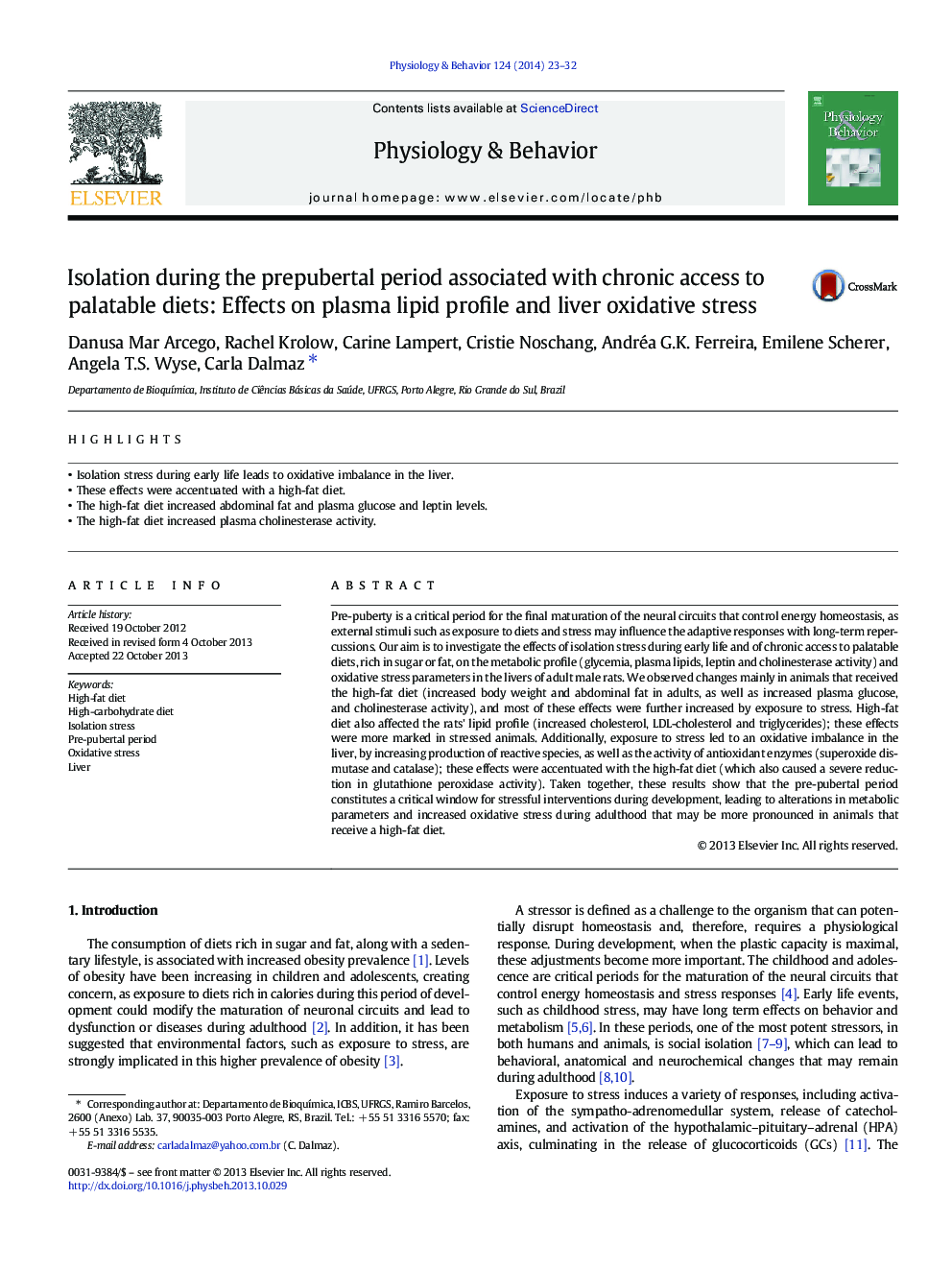| Article ID | Journal | Published Year | Pages | File Type |
|---|---|---|---|---|
| 5924511 | Physiology & Behavior | 2014 | 10 Pages |
Abstract
Pre-puberty is a critical period for the final maturation of the neural circuits that control energy homeostasis, as external stimuli such as exposure to diets and stress may influence the adaptive responses with long-term repercussions. Our aim is to investigate the effects of isolation stress during early life and of chronic access to palatable diets, rich in sugar or fat, on the metabolic profile (glycemia, plasma lipids, leptin and cholinesterase activity) and oxidative stress parameters in the livers of adult male rats. We observed changes mainly in animals that received the high-fat diet (increased body weight and abdominal fat in adults, as well as increased plasma glucose, and cholinesterase activity), and most of these effects were further increased by exposure to stress. High-fat diet also affected the rats' lipid profile (increased cholesterol, LDL-cholesterol and triglycerides); these effects were more marked in stressed animals. Additionally, exposure to stress led to an oxidative imbalance in the liver, by increasing production of reactive species, as well as the activity of antioxidant enzymes (superoxide dismutase and catalase); these effects were accentuated with the high-fat diet (which also caused a severe reduction in glutathione peroxidase activity). Taken together, these results show that the pre-pubertal period constitutes a critical window for stressful interventions during development, leading to alterations in metabolic parameters and increased oxidative stress during adulthood that may be more pronounced in animals that receive a high-fat diet.
Related Topics
Life Sciences
Biochemistry, Genetics and Molecular Biology
Physiology
Authors
Danusa Mar Arcego, Rachel Krolow, Carine Lampert, Cristie Noschang, Andréa G.K. Ferreira, Emilene Scherer, Angela T.S. Wyse, Carla Dalmaz,
